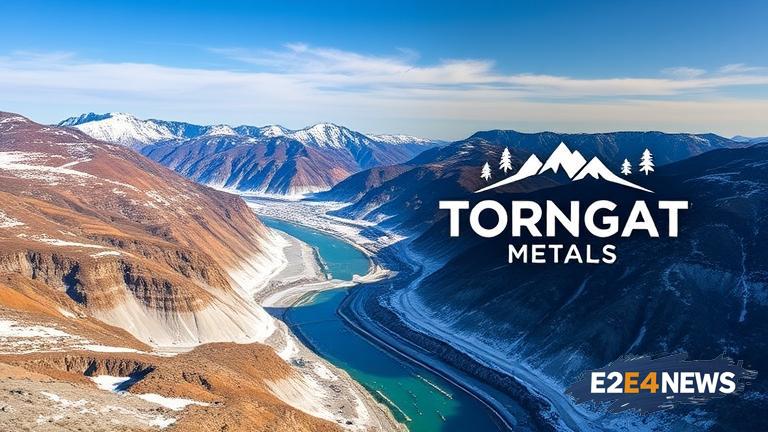In a significant move to bolster the rare earth supply chain, Vac and Torngat Metals have announced a strategic partnership. This collaboration aims to enhance the production and distribution of critical materials, which are essential for various industries, including renewable energy, electronics, and automotive. The partnership is expected to strengthen the global supply chain, reducing dependence on limited sources and promoting a more stable and secure supply of rare earth elements. With the increasing demand for rare earth materials, this partnership is poised to play a crucial role in meeting the needs of various sectors. The rare earth supply chain has been a subject of concern in recent years, with many countries seeking to diversify their sources and reduce reliance on dominant players. The partnership between Vac and Torngat Metals is a significant step towards achieving this goal. By combining their expertise and resources, the two companies aim to improve the efficiency and sustainability of rare earth production. This collaboration is also expected to foster innovation, driving the development of new technologies and applications for rare earth materials. The partnership will enable the companies to share knowledge, expertise, and best practices, ultimately leading to improved production processes and reduced environmental impact. Furthermore, the collaboration will facilitate the exchange of ideas and expertise, promoting the development of new products and applications. The rare earth supply chain is complex, involving multiple stages from mining to processing and distribution. The partnership between Vac and Torngat Metals will help to streamline this process, reducing costs and improving delivery times. This, in turn, will benefit various industries that rely on rare earth materials, including the renewable energy sector, which requires these materials for the production of wind turbines and solar panels. The automotive industry also relies heavily on rare earth materials, using them in the production of electric vehicles and other components. The electronics industry is another significant consumer of rare earth materials, using them in the production of smartphones, laptops, and other devices. The partnership between Vac and Torngat Metals is a significant development in the rare earth sector, with far-reaching implications for various industries. As the demand for rare earth materials continues to grow, this collaboration is poised to play a vital role in meeting the needs of various sectors. The partnership is also expected to promote sustainability, driving the development of more environmentally friendly production processes and reducing waste. In addition, the collaboration will help to improve the transparency and accountability of the rare earth supply chain, reducing the risk of illegal mining and trade. The partnership between Vac and Torngat Metals is a positive step towards creating a more stable and secure rare earth supply chain, benefiting various industries and promoting sustainability. With the increasing focus on renewable energy and reducing carbon emissions, the demand for rare earth materials is expected to continue growing. The partnership between Vac and Torngat Metals is well-positioned to meet this demand, providing a stable and secure supply of critical materials. The collaboration is also expected to drive innovation, promoting the development of new technologies and applications for rare earth materials. As the rare earth sector continues to evolve, the partnership between Vac and Torngat Metals is poised to play a significant role in shaping the future of the industry. The companies’ commitment to sustainability and transparency will help to promote a more responsible and environmentally friendly rare earth supply chain. In conclusion, the strategic partnership between Vac and Torngat Metals is a significant development in the rare earth sector, with far-reaching implications for various industries. The collaboration is expected to strengthen the global supply chain, promote sustainability, and drive innovation, ultimately benefiting various sectors and promoting a more stable and secure rare earth supply chain.
